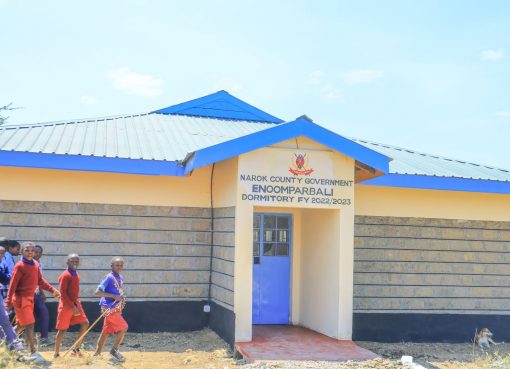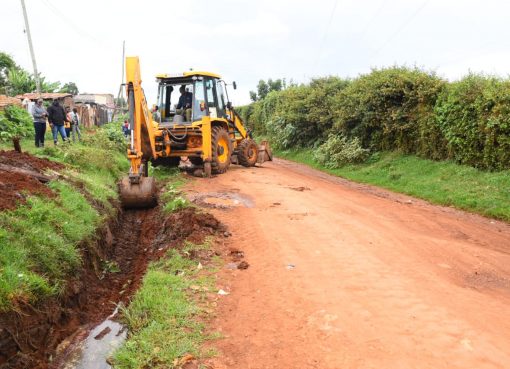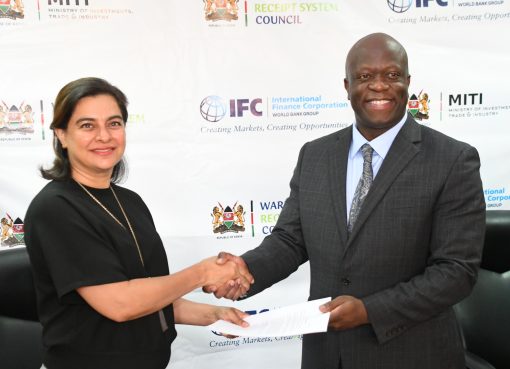The Estonian and Kenyan governments’ cooperation in trade ties will see Kenya benefit from massive development and creation of job opportunities, a boost to the country’s economic growth.
The President of the Republic of Estonia, Kersti Kaljulaid has thanked Kenyans for opening opportunities for Estonian investors to invest in the country to promote trade and tourism.
She said despite the distance, the two countries can share important sustainable industry development in the areas of timber, silicon, textile management, water purification, Information, Communication and Technology, green energy, tourism and health.
President Kaljulaid said in the global world, companies need to think big and come up with development that is geared towards economic growth, saying that her country is seeking to invest globally in various countries where there is potential for investment.
The Estonian investors, who have a long term focus to invest in East Africa and especially Kenya, view the country as a gateway to East Africa Community and the rest of Africa have promised to open an office in Nairobi, in 2022 for their operations.
President Kaljulaid was speaking during the Kenya-Estonia Business forum themed ‘Promoting Trade, Investment and Tourism for Mutual Benefit ‘ on Friday in Nairobi where she witnessed the signing of a Memorandum of Understanding (MOU) between Kenya Investment Authority (KenInvest) and Enterprise Estonia (TBC), signed by KenInvest Managing Director Moses Ikiara and Head of Export Advisors Team Trade Development Agency Enterprise Estonia, Mr. Sven Aulik.
The forum was attended by the Cabinet Secretary for Industrialization, Trade and Enterprise Development Ms. Betty Maina, Cabinet Secretary for ICT, Innovation and Youth Affairs Joe Mucheru, Ms. Sile Kraam the Deputy Minister of Economic Development of the Republic of Estonia and Amb. Johnson Weru Principal Secretary State Department of Trade and Enterprise Development among others.
She said Estonia companies will offer jobs globally in the countries where they invest and in particular, in densely populated countries, and added that water purification will no longer be a problem in Kenya when Estonian investors come to the country as they will install systems for purification.
“I know you are worried about the Nairobi River, we will put in systems that will purify water you could not do 30 years ago, but you can do it now,” said the President.
She announced that Estonian investors who have interest in investing in Kenya will help the country in the digitization of the school curriculum to enable every child achieve their potential, including the judiciary for security and inscription of the important documents.
In her remarks, CS Maina said Kenya is honoured to be the first country on the African continent to receive the Estonia delegation, and convening of the roundtable for the private sector to deepen links between themselves and strengthen economic ties between the two countries.
Ms. Maina lauded the cordial relations existing between the two countries and in particular, the recent Estonia Africa engagement Strategy that prioritizes Kenya as one of the five countries that Estonia has chosen to deepen economic ties with.
“This will certainly elevate these relations to a new level and enable us to tap into the strengths of the Estonian economy,” noted the CS.
She said the economic and trade relations between the two countries are governed by the East African Community-European Union (EAC- EU) Economic Partnership Agreement since Estonia is a member of the European Union, a reason she said has enabled Kenya to export to the Estonian market.
The CS however, noted that trade between the two parties has always been in favour of Estonia for the last ten years, despite the EAC – EU EPA framework, and pointed that Kenya’s total exports to Estonia were valued at approximately Sh379, 376 in 2020 a decrease from Ksh.384, 924 in 2019 while imports from Estonia were valued at Sh. 1,051,734,636 in 2020, a decrease from Sh 139,617,014 in 2019.
“Trade goods between the two parties has been declining for the last three years, from Sh 55,960,888 in 2018 to Sh 384,924 in 2019 and Sh 379, 376 in 2020,” noted the CS.
The CS said since Kenya is predominantly an agriculturally based economy, it will seek a collaboration that will enable the country to supply at least 5 percent of each of its agricultural products in order to address the big trade gap between the two countries.
Kenya’s leading exports into Estonia in 2020 comprised of cut flowers and live plants, and fishing gear and equipment while the imports from Estonia were wheat grain, intermediate paper products, worn clothing and clothing accessories, and waste and scrap aluminium.
She at the same time announced that Kenya has taken note of Estonia’s imports from the rest of the world, and has seen potential to supply the Estonian market with meat and edible meat offal, Fish and Crustaceans, Molluscs and other aquatic invertebrates, Coffee, tea, mate and spices.
Kenya will also supply Estonia with fruits, vegetables, live animals, dairy products; bird’s eggs, natural honey, edible products of animal origin, products of animal origin and gum Arabic.
The CS said the cooperation with Estonia will also enable Kenya to access markets with its neighbours and in particular, the Russian Federation, a market that the country is so much interested in.
She emphasized that Kenya will take advantage of Estonia’s Africa strategy, which focuses on education, ICT, environment, energy and e-governance to enhance economic opportunities for its citizens, particularly the youth who are tech savvy.
She added that Kenya is keen to consummate the opportunities availed through the recently signed MoU on ICT.
The business delegates from the two countries came together to exchange business views, ideas and interact with one another on how they can strengthen trade ties that can bring mutual benefits to their countries and citizenry.
By Bernadette Khaduli





